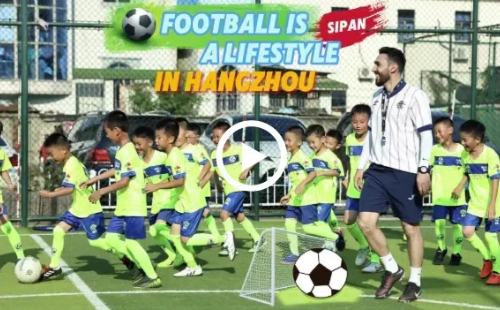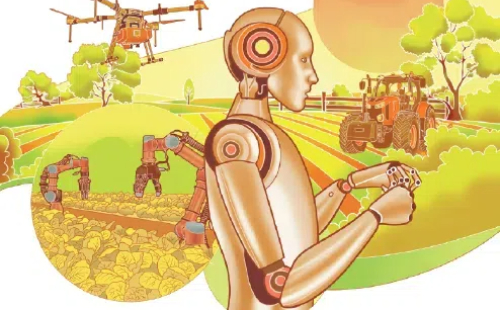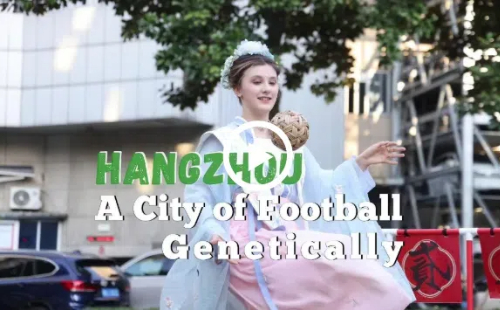Glimpses of China's rural revitalization
Shared farm
A startup company called Yimadangxian built a shared farm in the Zhejiang village of Chengyang in late 2020. This model combines online e-commerce services and offline activities.
Customers can place tailor-made orders from the farms. The farms also lend themselves to activities that attract urban families looking for a place to spend a weekend or national holidays.
More than 100 villagers have taken jobs at the shared farm.
Yu Zhenfei, a craftsman who sold goods made with bamboo strips, became a craftsmanship tutor, teaching visitors the basic techniques of making goods with bamboo strips.
During the May Day holiday in 2021, the farm welcomed a record 6,000 visitors on May 3. Combined sales revenue at the restaurants, souvenir shops and local specialty stores in Chengyang topped 280,000 yuan ($44,044) on that day.
Shared farms are emerging around suburban areas. Urban residents can rent a piece of land and grow their own vegetables, their children can experience picking fruit and vegetables and feeding animals and farmers can take care of the rented land and turn into workshop tutors, which forms a win-win situation.
Industry
Yixing in Jiangsu province has long been renowned for its purple clay art. Boasting a history of more than 2,000 years, the city sits on the west bank of Taihu Lake and is known as China's pottery capital.
Xiwang village in Yixing was one of the first places in China to begin crafting items made from purple clay, and this profession has remained a pillar industry in the village since the Ming Dynasty.
However, the purple clay industry was confined to small workshops that were unable to maintain the level of quality and had little scope to be creative.
"I think the traditional format hampered the development of this art form," village Party chief Fan Zefeng said.
Believing in the power of collective wisdom and strength, he and several other young artists set up a professional purple clay art studio with other villagers in 2009-the first of its kind in the country.
Villagers gathered at the studio to learn and exchange skills. Master craftsmen and art teachers were invited to conduct classes and hold exhibitions to improve local handicraft expertise.
A more competitive marketing approach was also adopted to promote local products.
The production of items made from purple clay soon evolved from a closed format to one that was more open and backed by a complete industrial chain comprising raw material processing, design and production, training, marketing and promotion.
The village now has three comprehensive industry bases, 12 creative art teams and more than 300 art studios. Products from Xiwang have grown in popularity among purple clay enthusiasts.
In 2020, the annual output value of purple clay products in Xiwang was 260 million yuan ($40.08 million), the highest of all villages in Dingshu town. Villagers' annual income has also risen to about 100,000 yuan-among the highest in Yixing.
Villages across the country are striving to develop their local specialties into industries, such as potatoes, mushroom, orchid, apples and grapes.
E-commerce
Liang Qianjuan, a farmer from Longnan, Gansu province, spent more than a decade in Guangdong province to earn a living after dropping out of middle school. She moved up from being a migrant worker on an assembly line to a secretary in an office.
In 2013, encouraged by the local government's policies supporting e-commerce development, she made a decision that changed not only her own fortunes, but those of others in her home village.
She opened an online store selling farm produce.
"Online sales and livestreaming are the current trend. Compared with simply selling products through online shops, livestreaming allows better communication with customers and boosts sales as they can see the products in a more vivid way," she said.
"In the beginning, fellow villagers all thought e-commerce was nothing but a fraud, and they still sold to middlemen when I offered a higher price," she said. "My store, as a result, only had one product on sale-my family's homegrown walnuts."
But her store proved so popular that in just over a year she gained quite a few regular customers and started selling more local agricultural products online. Many local farmers began enlisting her help to sell their produce in return for a cut of the sales.
In 2019, Liang sold more than 50 metric tons of agricultural products through online orders. Due to the expansion of her online sales, she now has 400 local farmers supplying products to her-a quarter of whom used to live below the poverty line.
Cellphones have been considered as a new kind of farm implement. In 2020, the Ministry of Agriculture and Rural Affairs launched a weeklong campaign to teach farmers how to use mobile phone applications. Farmers were trained in livestreaming via mobile phones and short-video marketing. Local authorities followed suit. Many farmers began earning more with the help of e-commerce.





 play
play